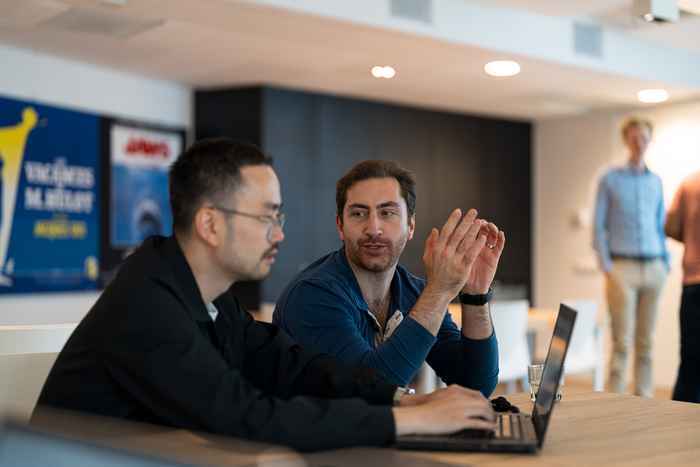AI & Data Science Day 2025: Morning programme
- Date
- 30 October 2025
- Time
- 09:30 -13:30
- Location
- University Library

Workshop 1: Generative AI infrastructure at the UvA
Note: This session is currently full. It is no longer possible to register because the maximum capacity has been reached.
In the first part of this workshop, we will provide an overview of the new infrastructure aimed at supporting the use of generative AI in research, with a particular focus on its Application Programming Interface (API). The infrastructure provides state-of-the-art generative AI models in a safe and secure fashion. In the second part of the workshop, participants will have the opportunity to get hands-on experience with the API.
This workshop is free of charge and open to UvA PhD students, researchers and employees only.
Prerequisites
This workshop is for researchers with basic programming knowledge (Python or R), looking to use GenAI for their research in an automated way, via APIs (see learning outcomes for more details). Note: basic programming knowledge could mean you have completed "Introduction to programming" workshops offered by the DSC, and/or are familiar with the concepts outlined in the following Carpentries guides:
Python https://swcarpentry.github.io/python-novice-gapminder/
R https://swcarpentry.github.io/r-novice-inflammation/
Learning outcomes
After this workshop, participants will:
- Understand the GenAI infrastructure at the UvA and its use for research
- Understand how the API works and being able to write your own code
- Get to know other researchers and their ideas for research applications
What to bring
Your own laptop with Python or R installed, and your favorite editor/IDE such as JupyterLab or RStudio. Note that while we will try our best to accommodate different setups, we might not be able to support all of them.
Workshop instructors
Rik Jager, Product Owner, Digital Collaboration at the Hogeschool van Amsterdam (AUAS)
Workshop 2: Language-and-vision models: From image-language alignment to storytelling and narration
Note: This session is currently full. It is no longer possible to register because the maximum capacity has been reached.
This workshop takes participants on a tour of multimodal AI models, and particularly language-and-vision models, from early modular pipelines to today's powerful end-to-end systems. We'll start with the basics, then dive into the newest approaches that can generate rich, context-aware narratives, like visual storytelling and event narration, rather than just short captions.
A central theme will be evaluation: when there isn't just one "right" answer, how do we know if a machine-generated output is good? We'll explore cutting-edge benchmarks and metrics for textual quality, coherence, and relevance, also highlighting the role of human-centered evaluation. Along the way, we'll share open challenges and best practices for researchers and practitioners.
The workshop is free of charge and open to UvA PhD students, researchers, and employees.
Prerequisites
This workshop is designed to be an accessible and introductory entry point to multimodal AI models. Participants should have a basic understanding of embeddings, large language models, and Transformers. The workshop includes a hands-on component, which means at least some familiarity with Python programming and standard tools such as GitHub and Jupyter Notebooks is required.
Learning outcomes
In this workshop, you will:
- Learn technical concepts about multimodal models, understanding their evolution over time and recent advances
- Get your hands on these architectures, testing their capabilities on tasks such as image captioning and visual storytelling
- Consider the challenges these models pose, particularly in evaluating their outputs
Workshop instructors
Afternoon programme: Keynotes and poster presentations
Hear from UvA’s leading voices in AI: Claes de Vreese, Maarten de Rijke, and Natali Helberger, and engage with them during the interactive Q&A.